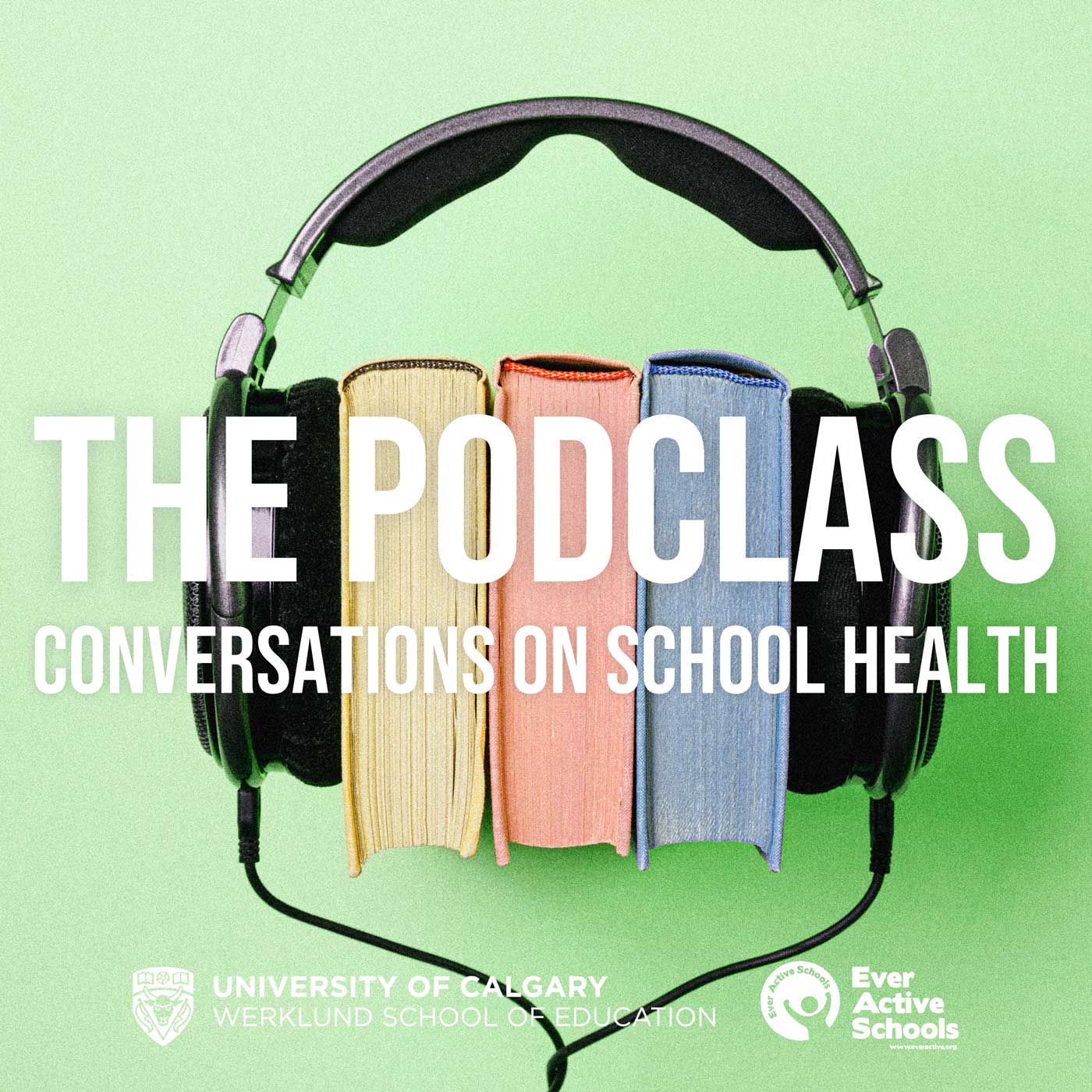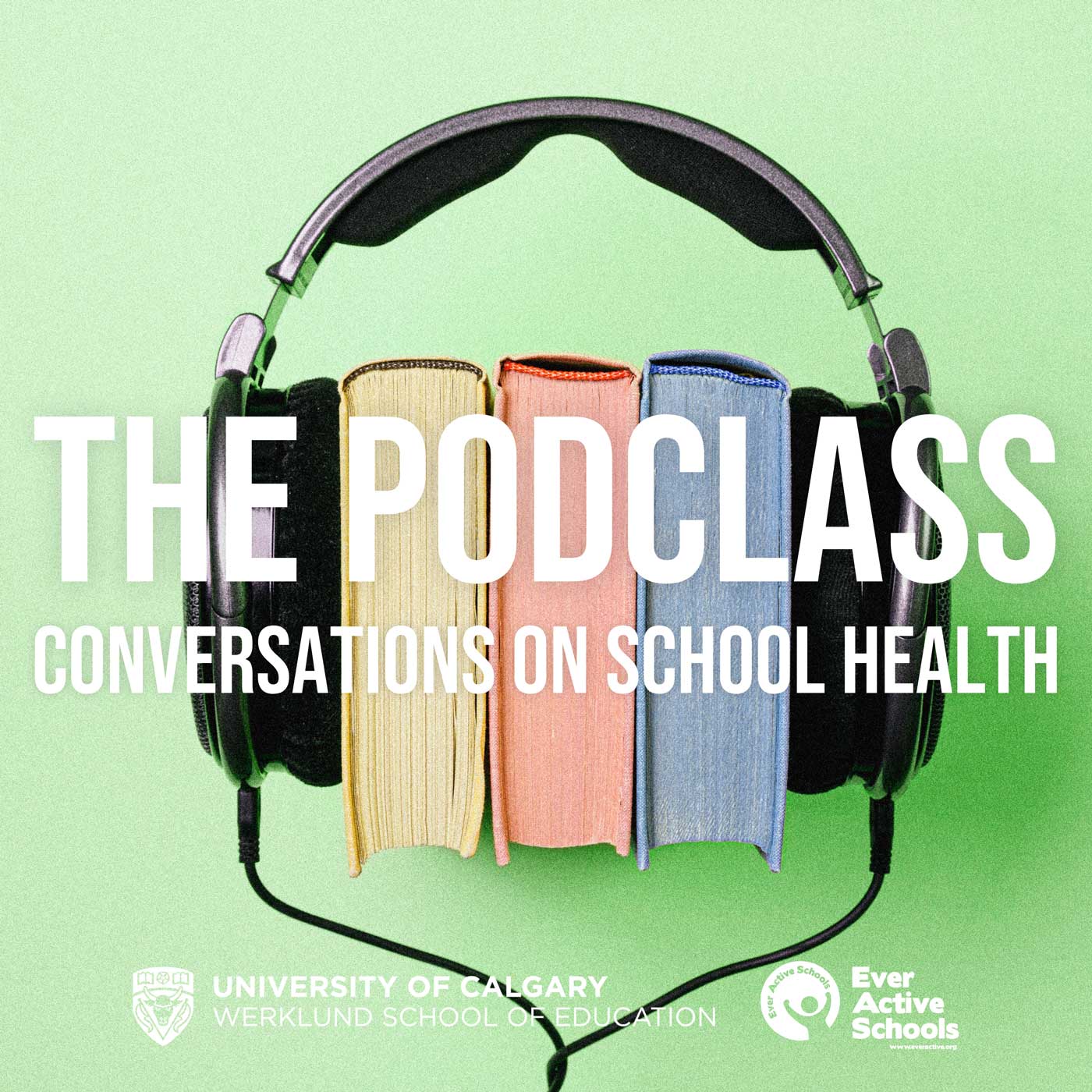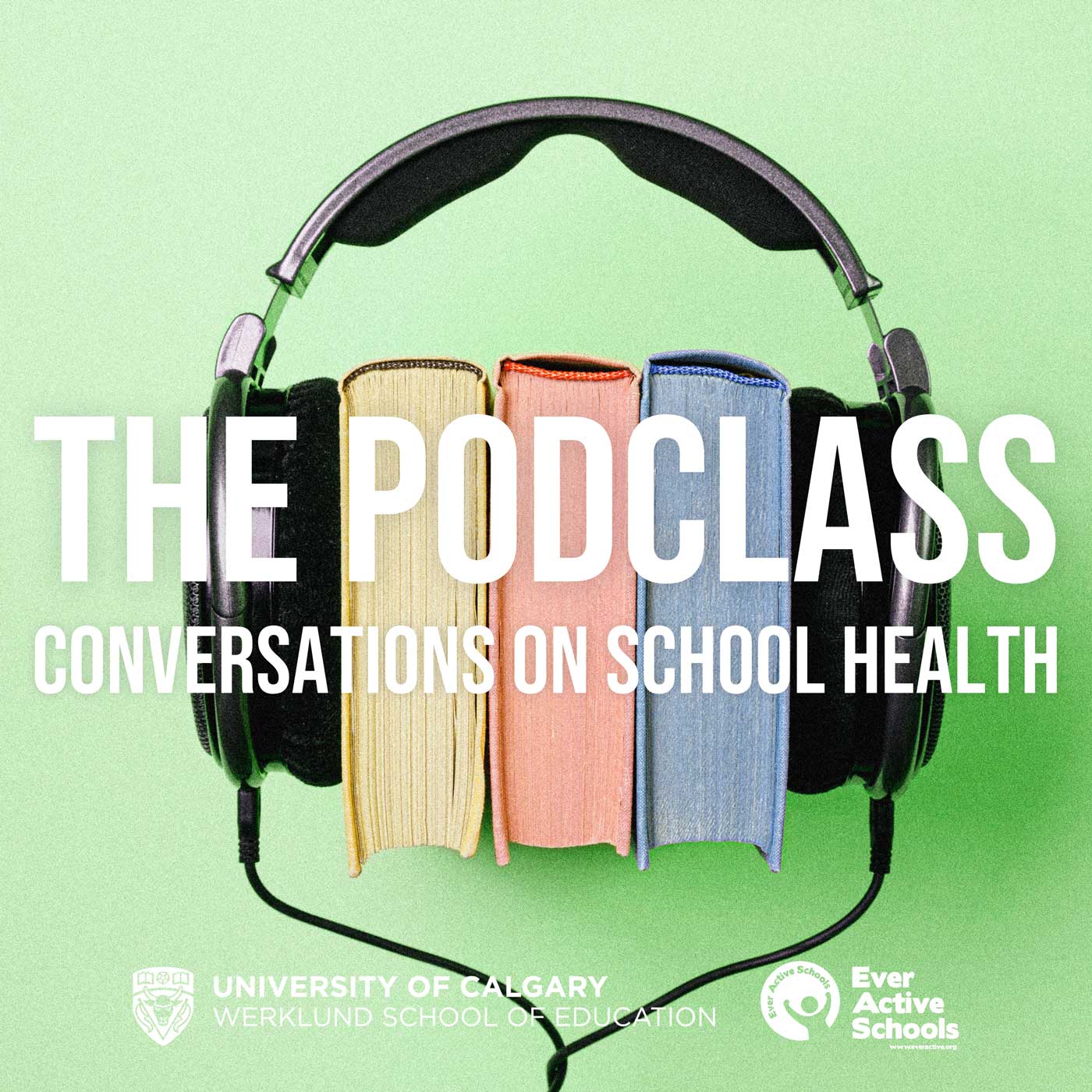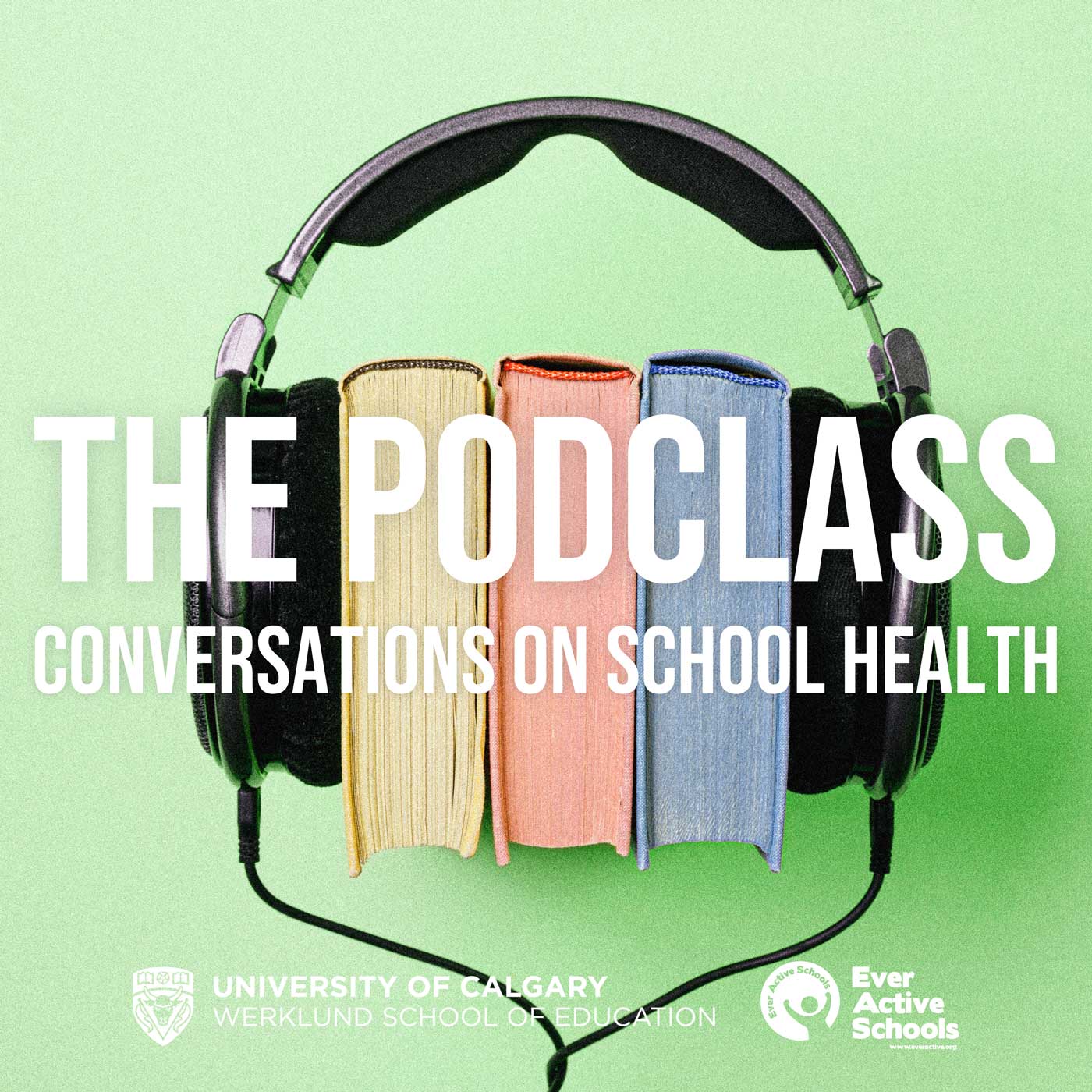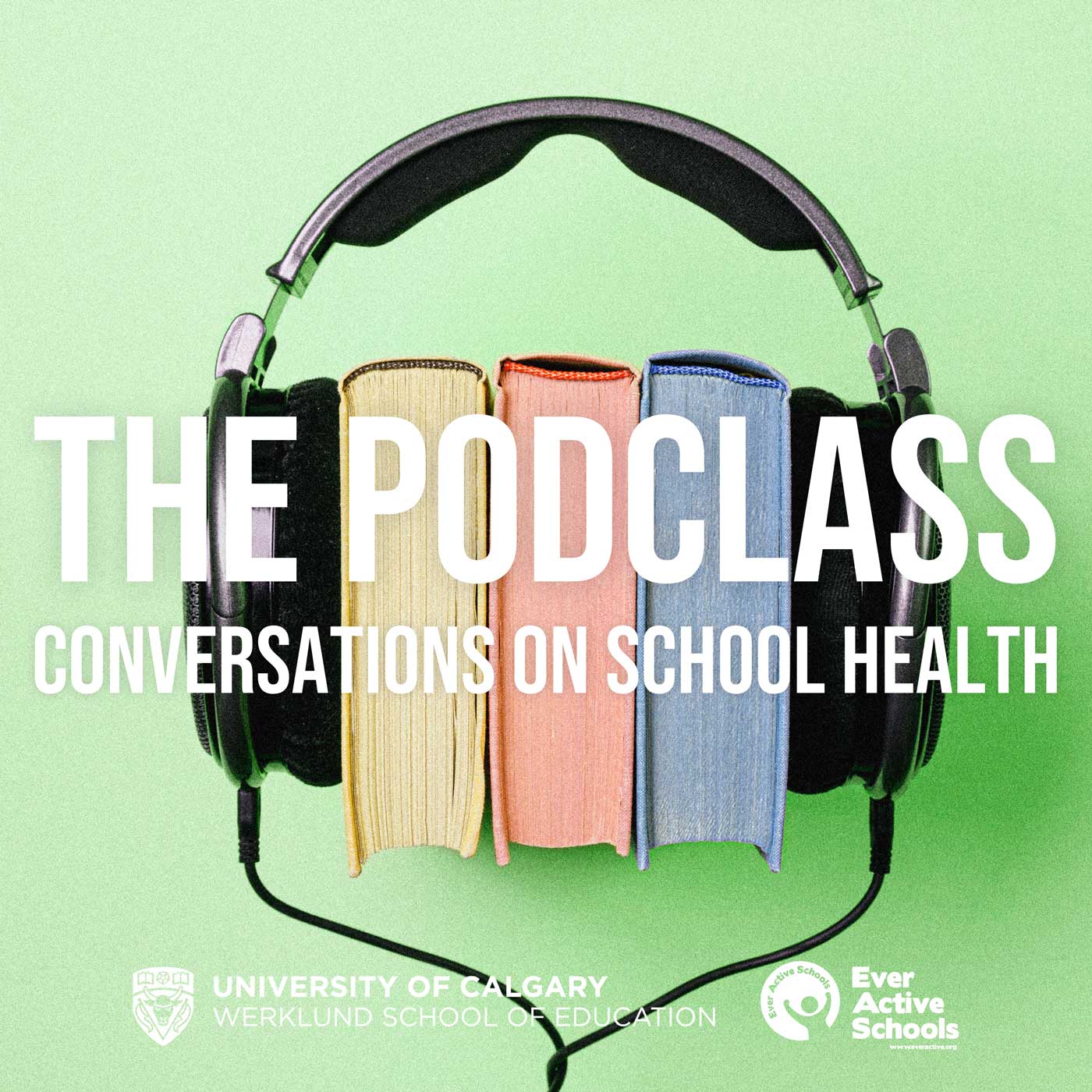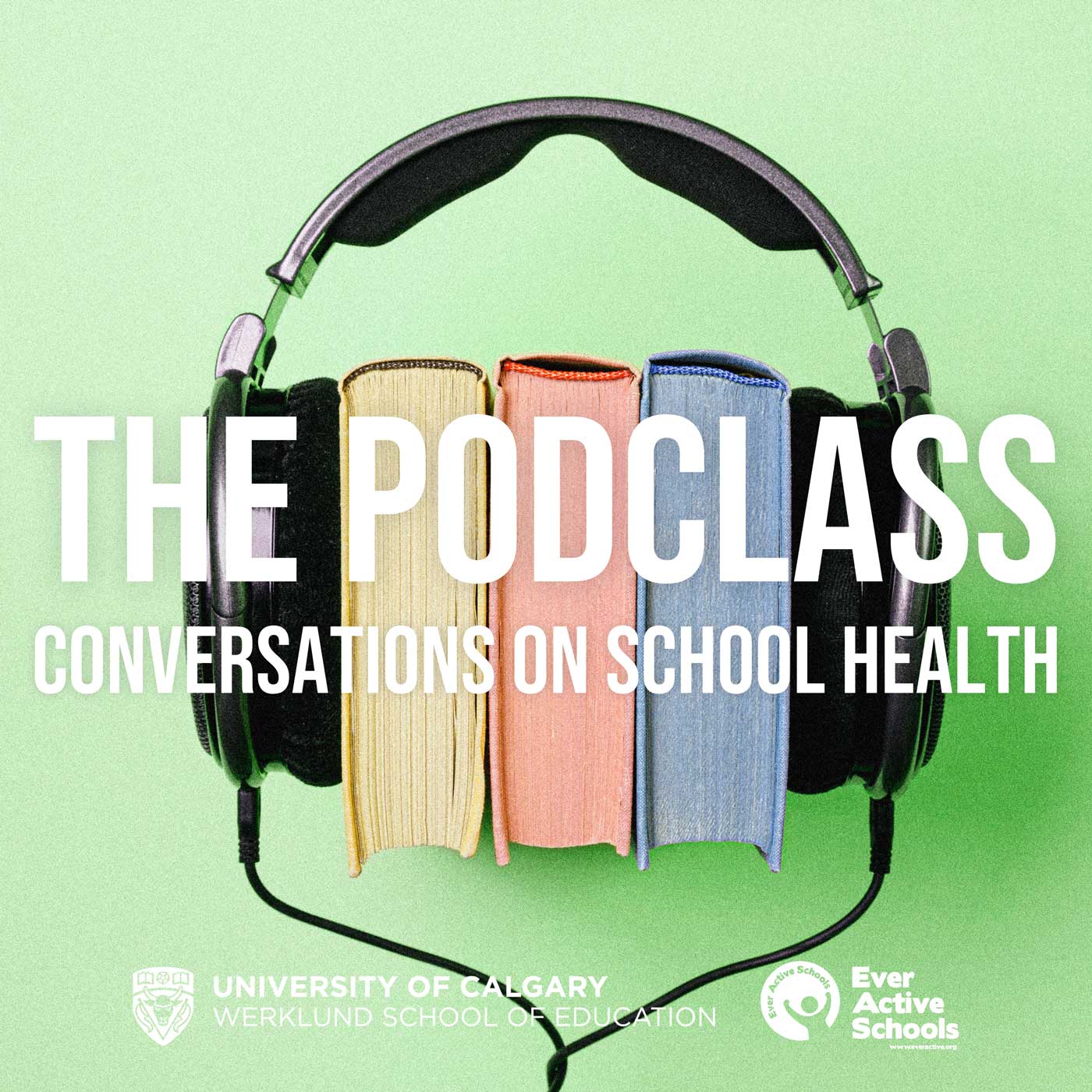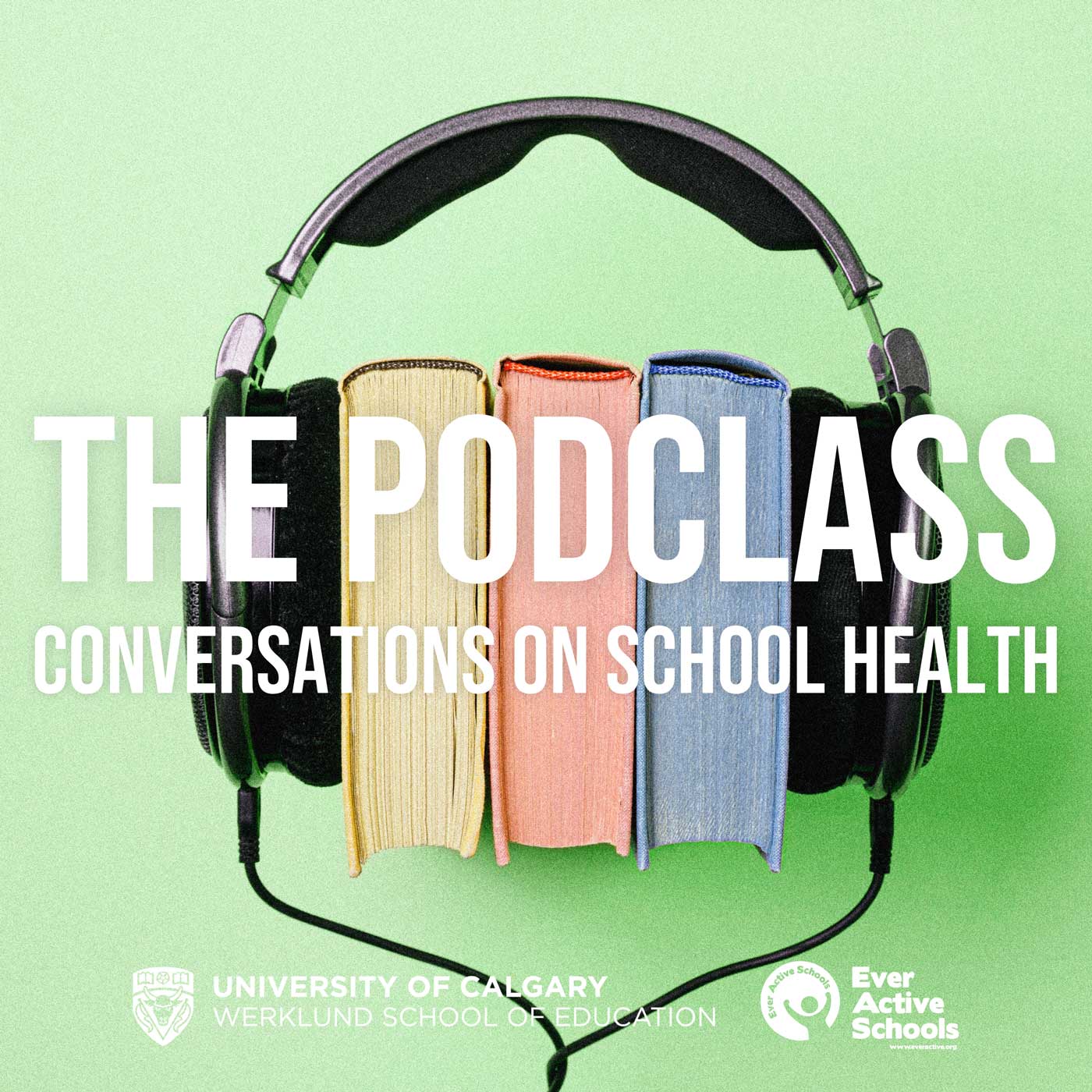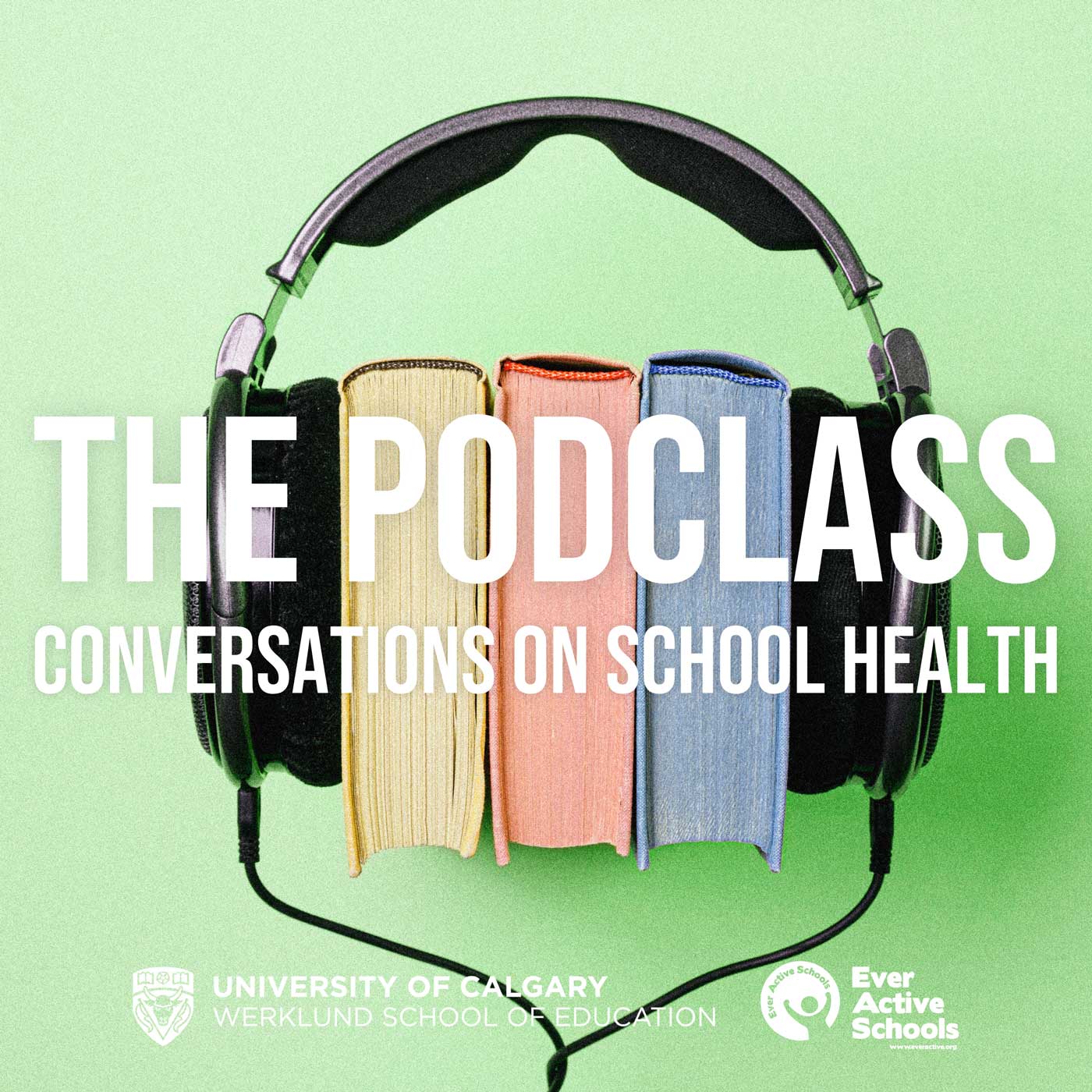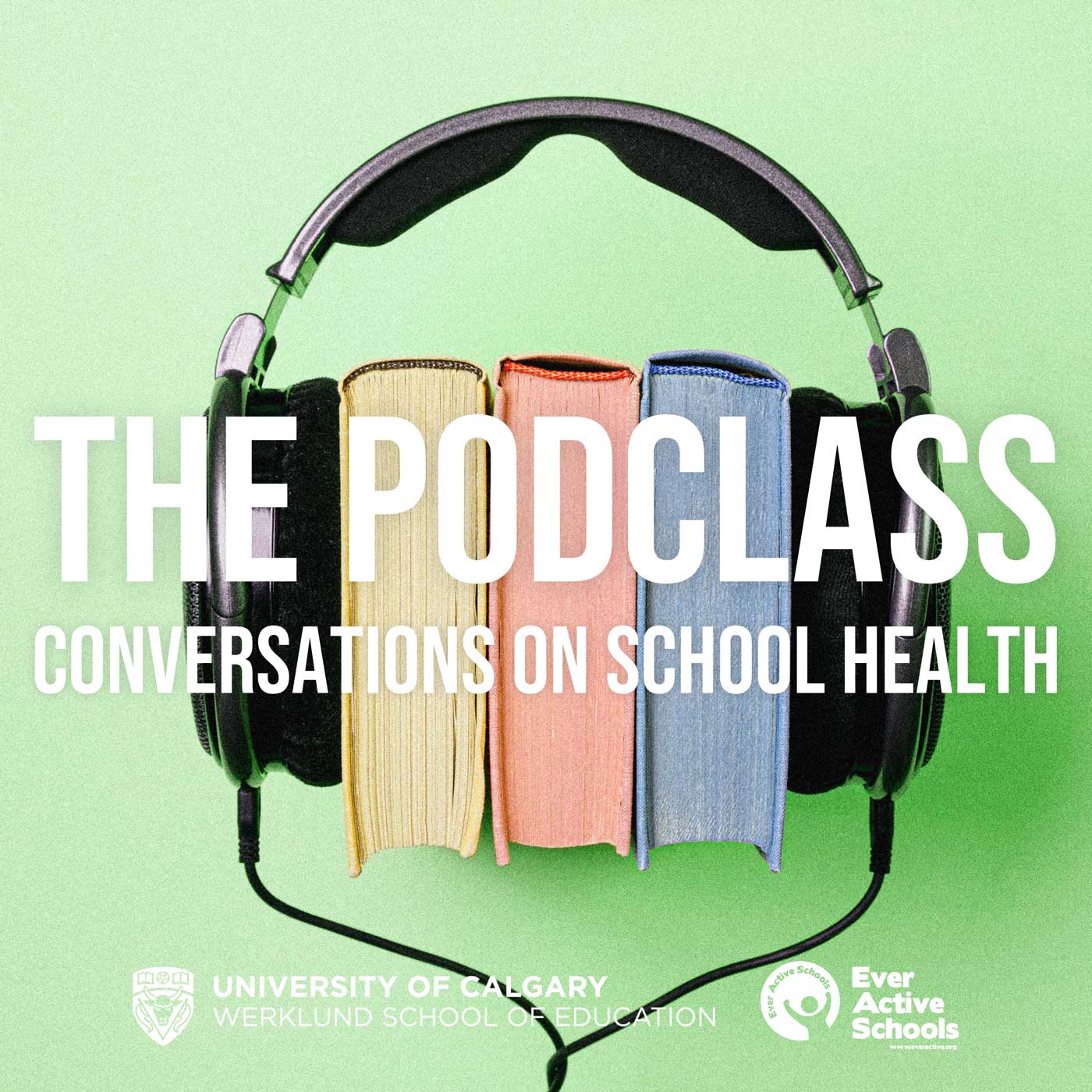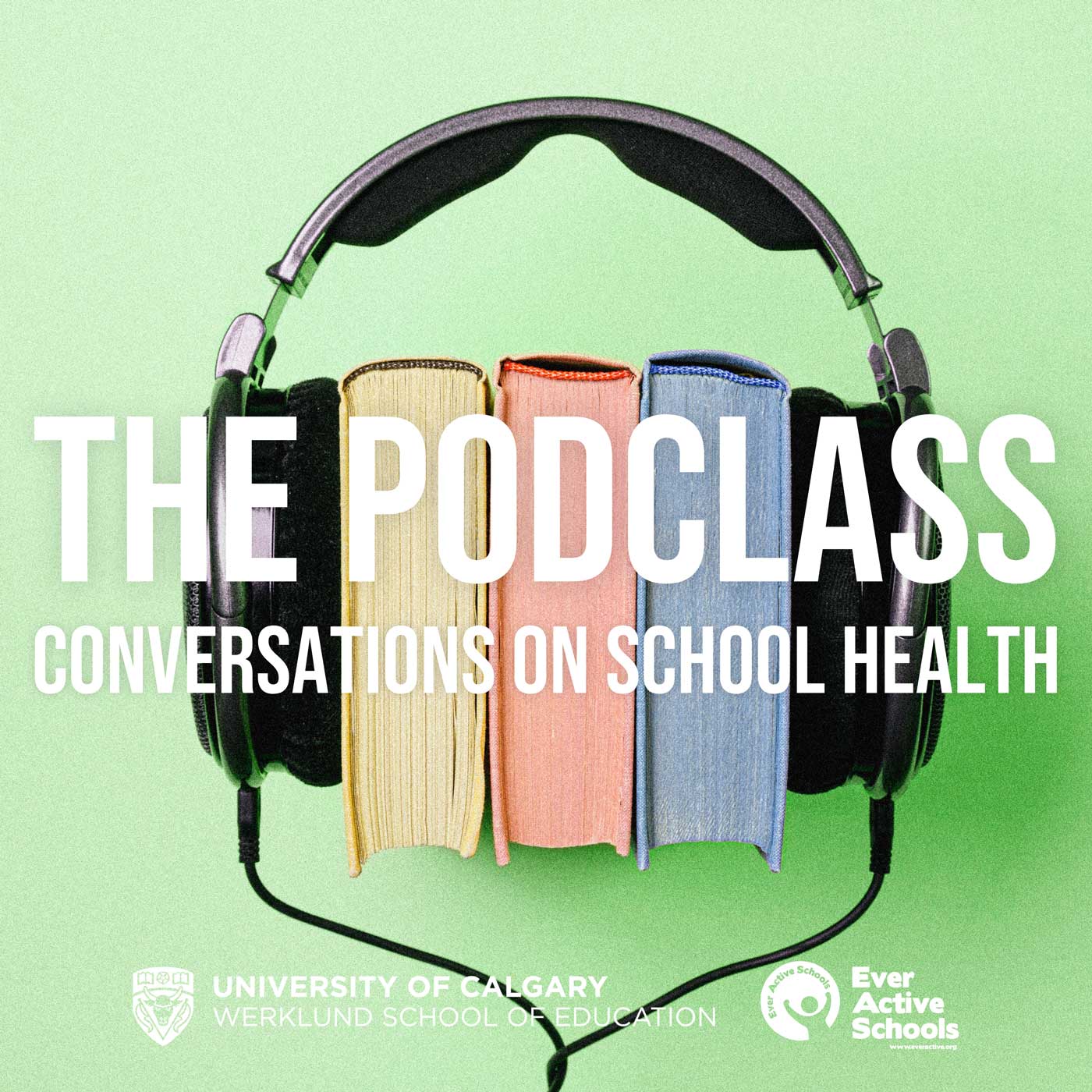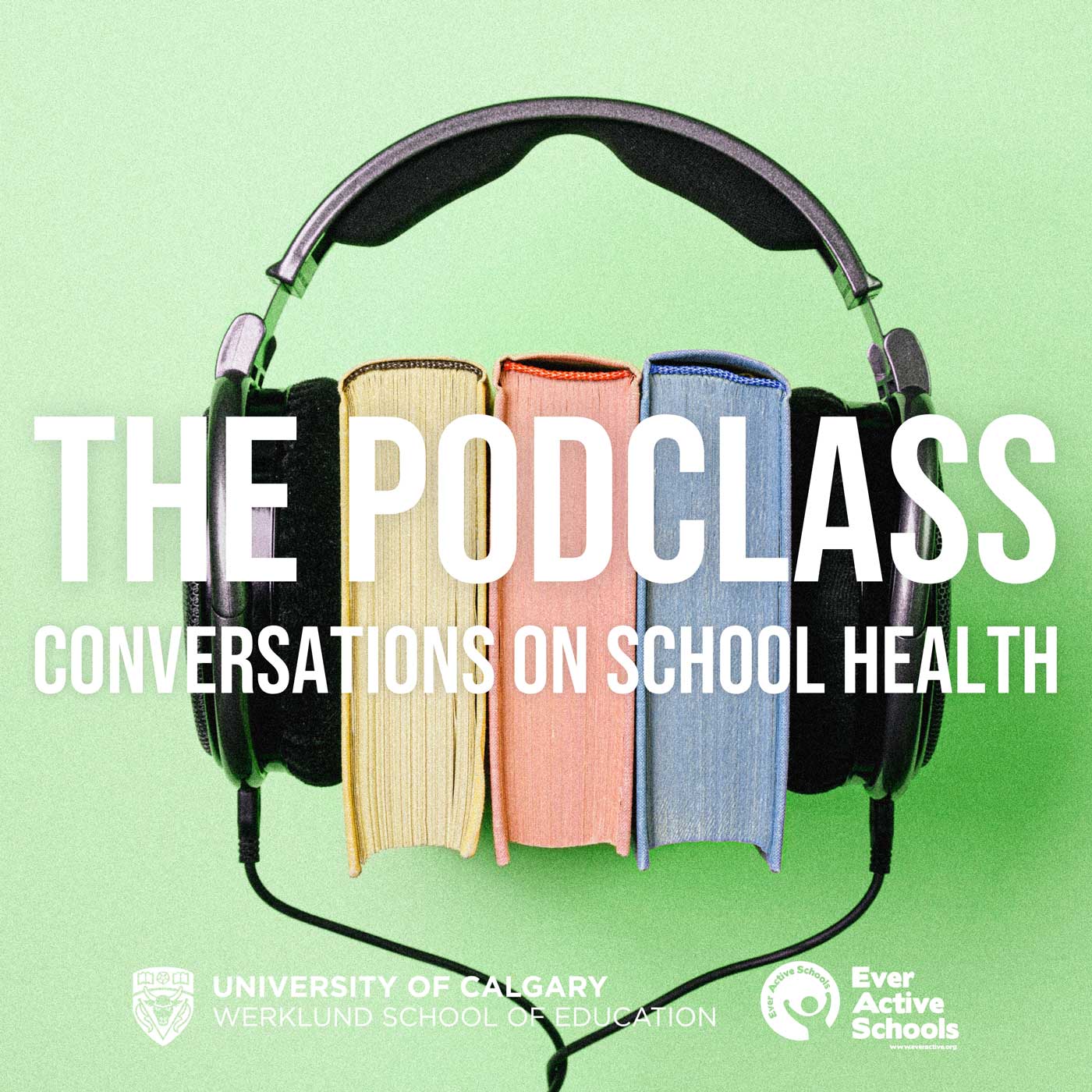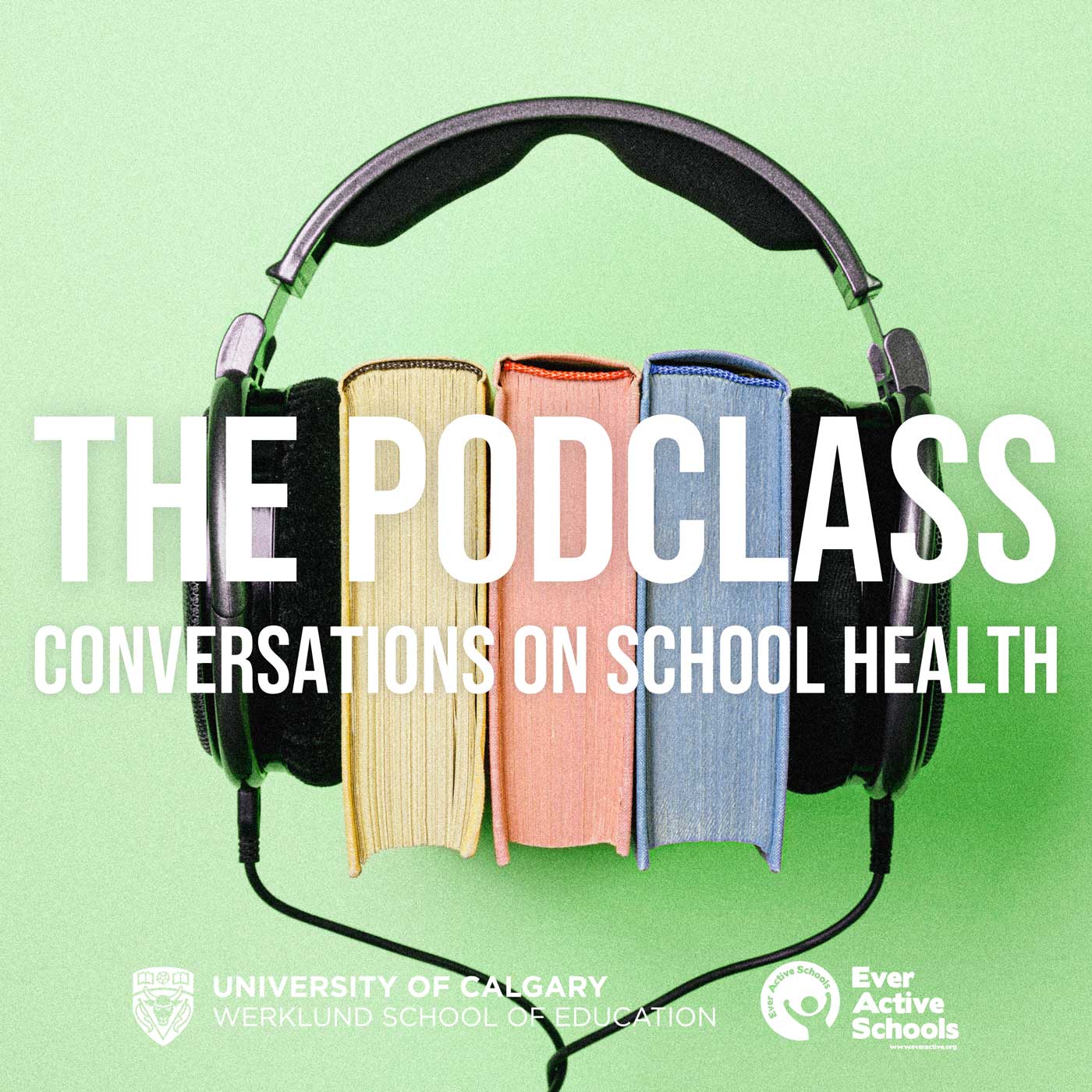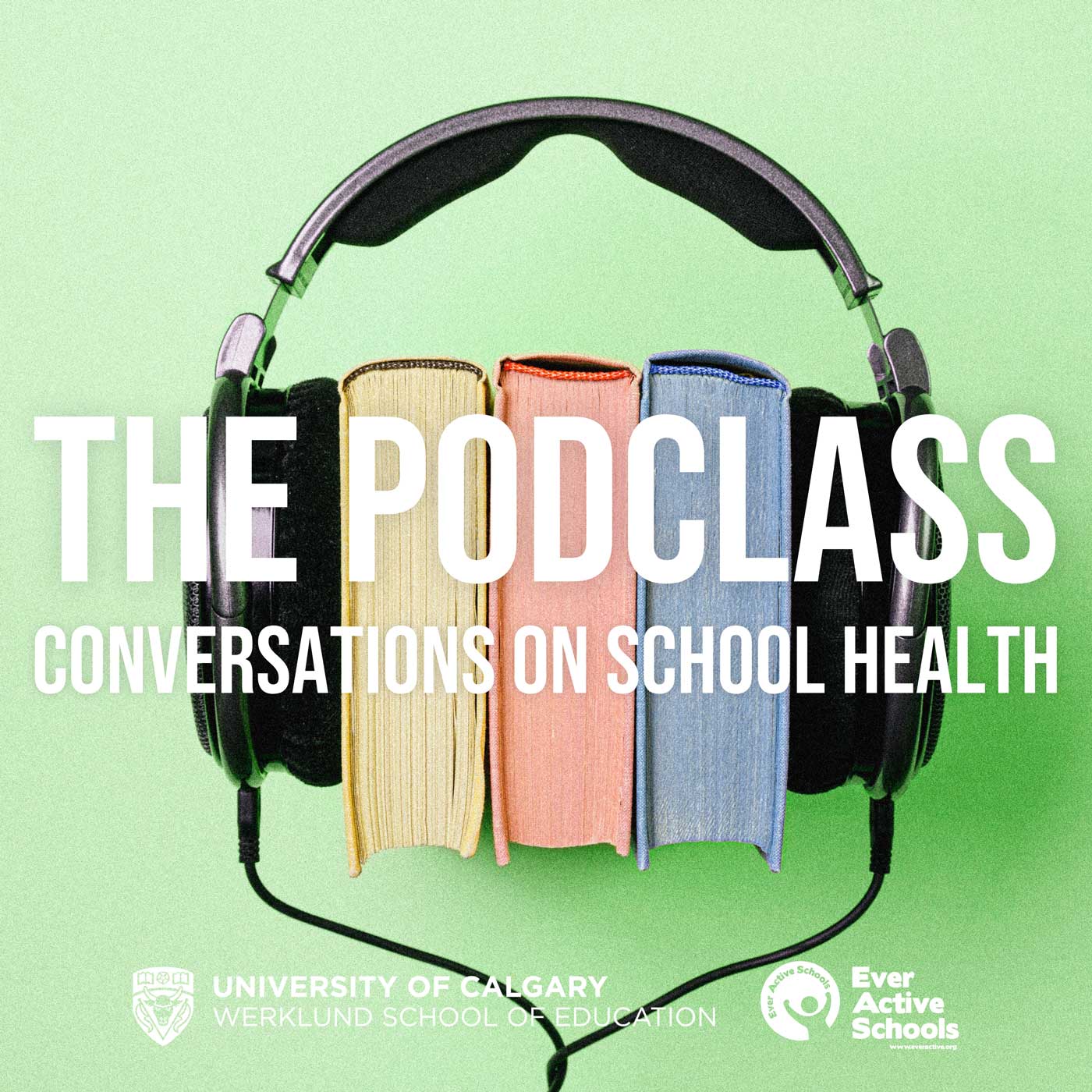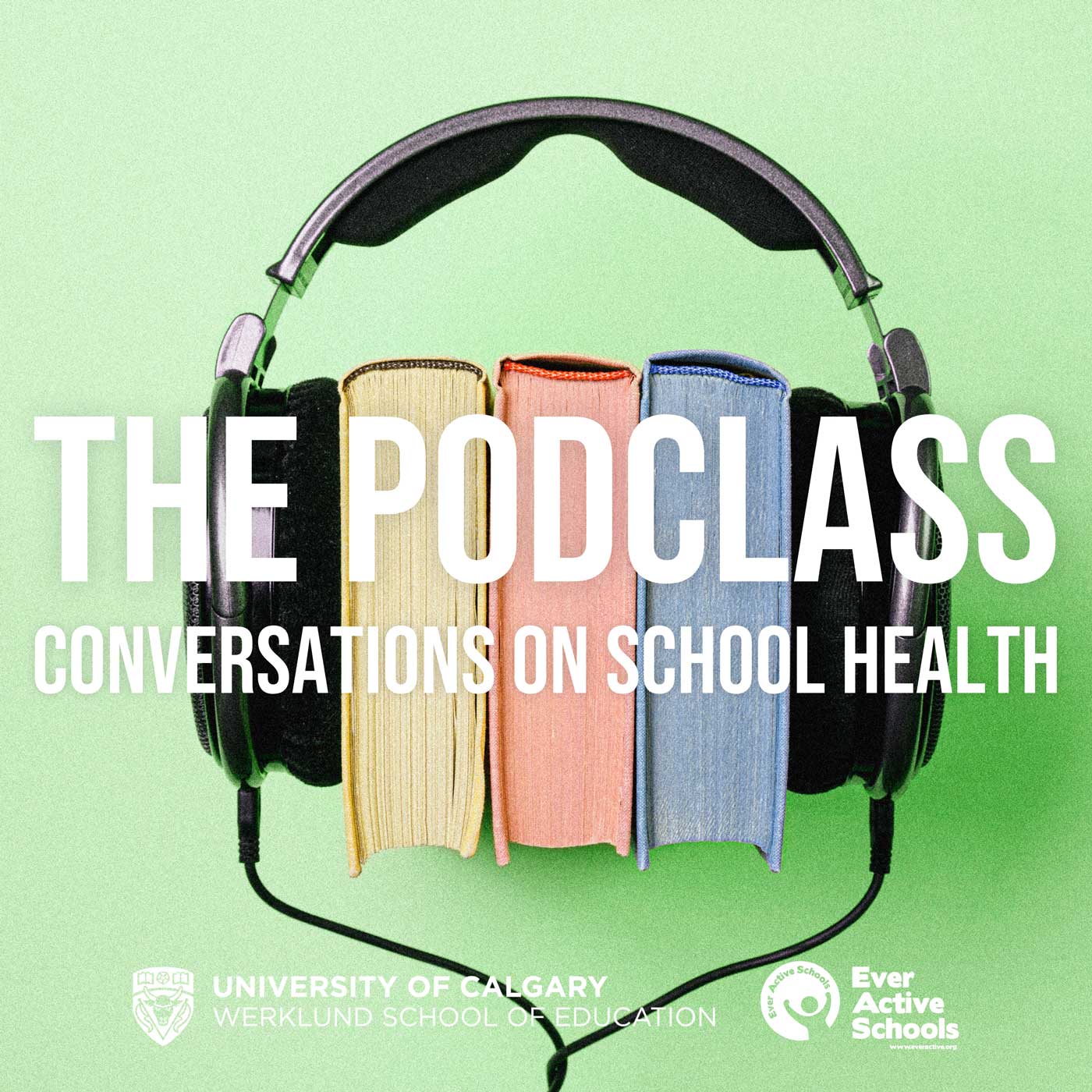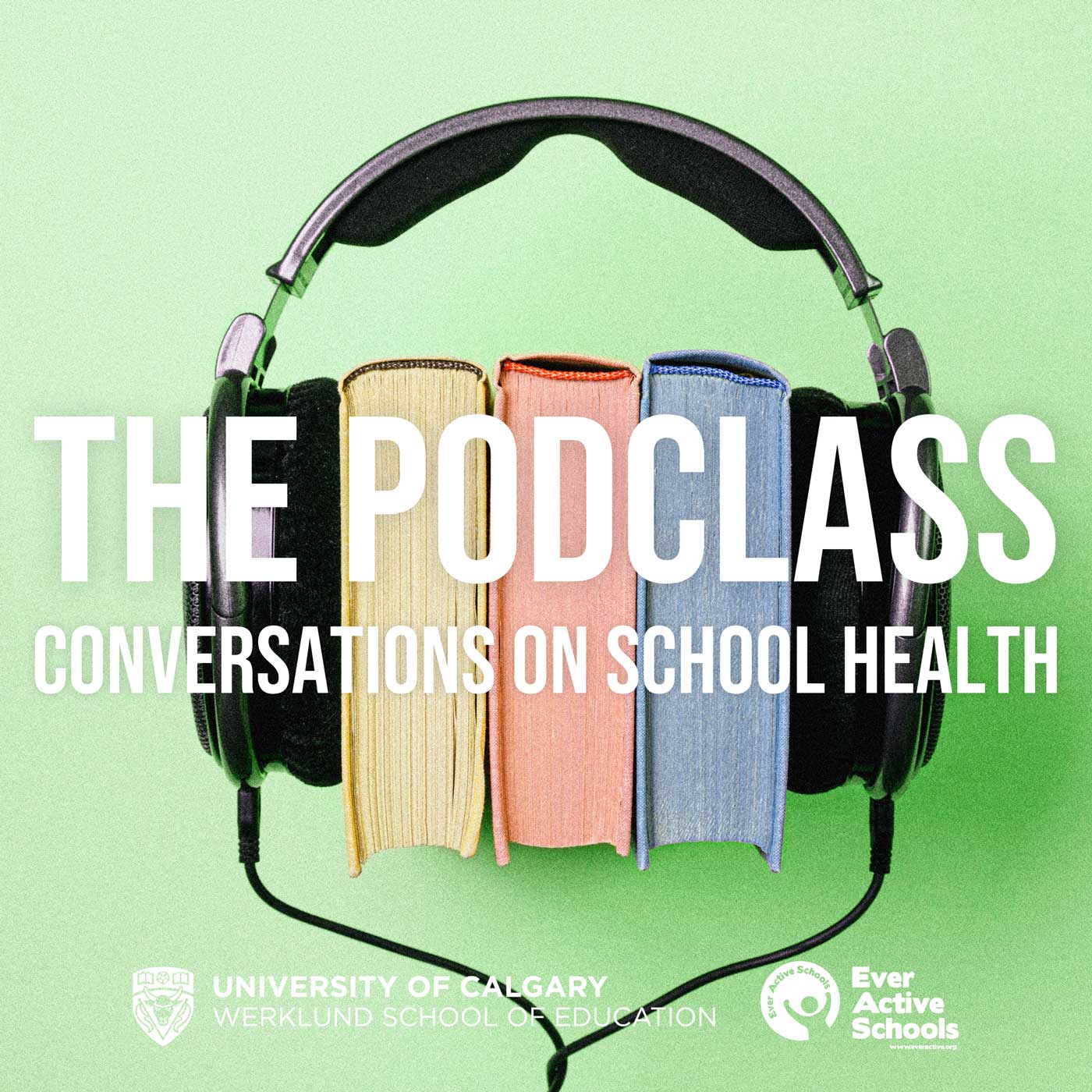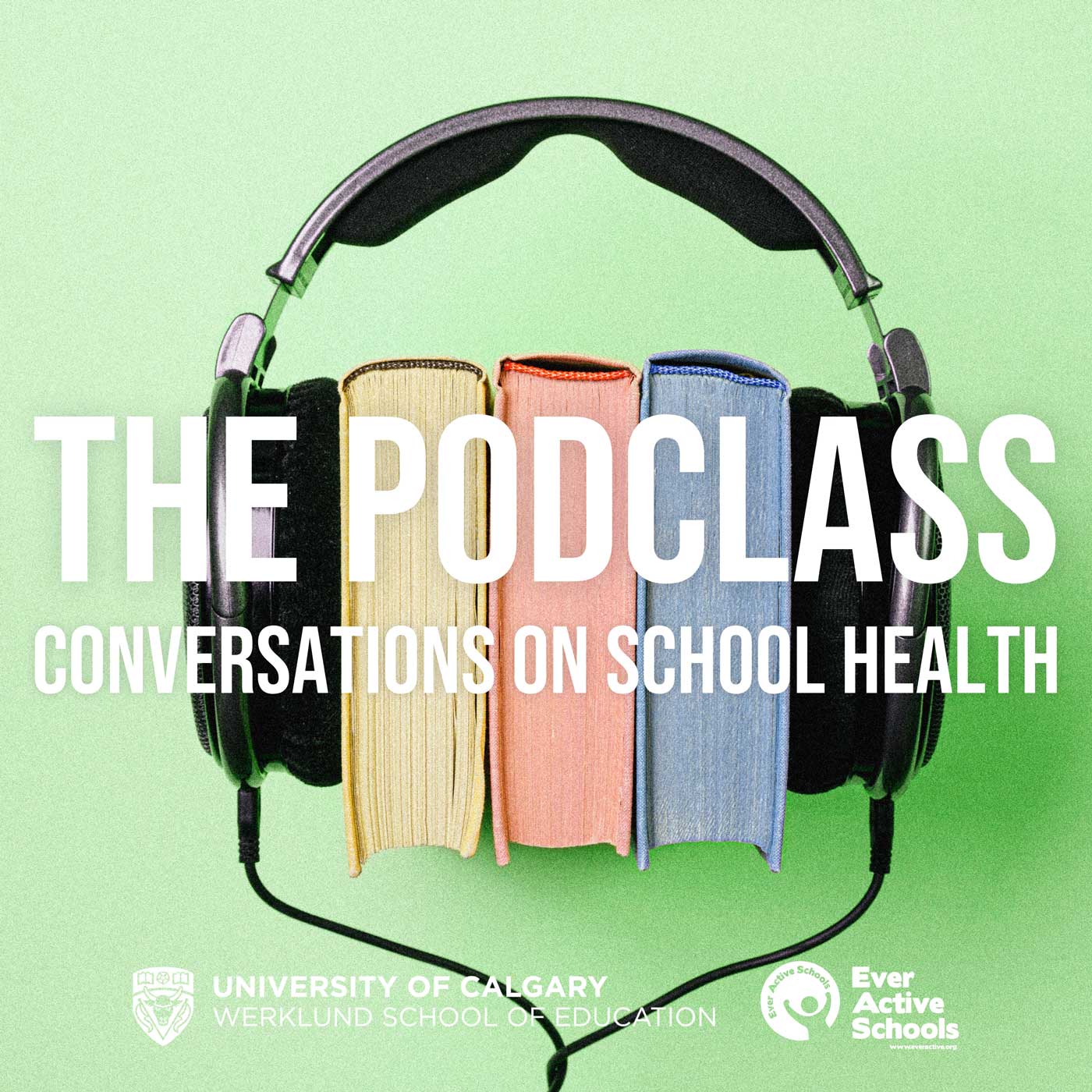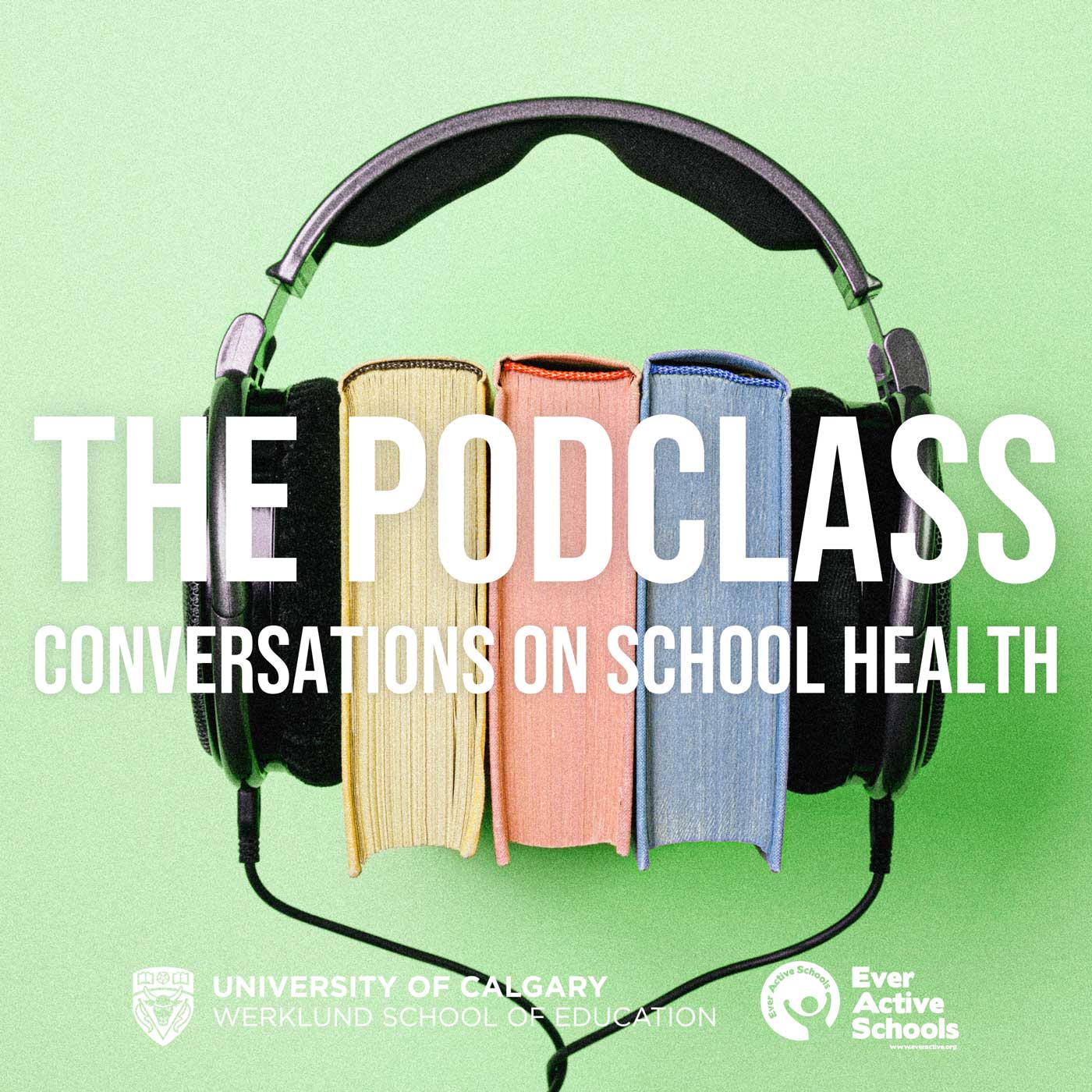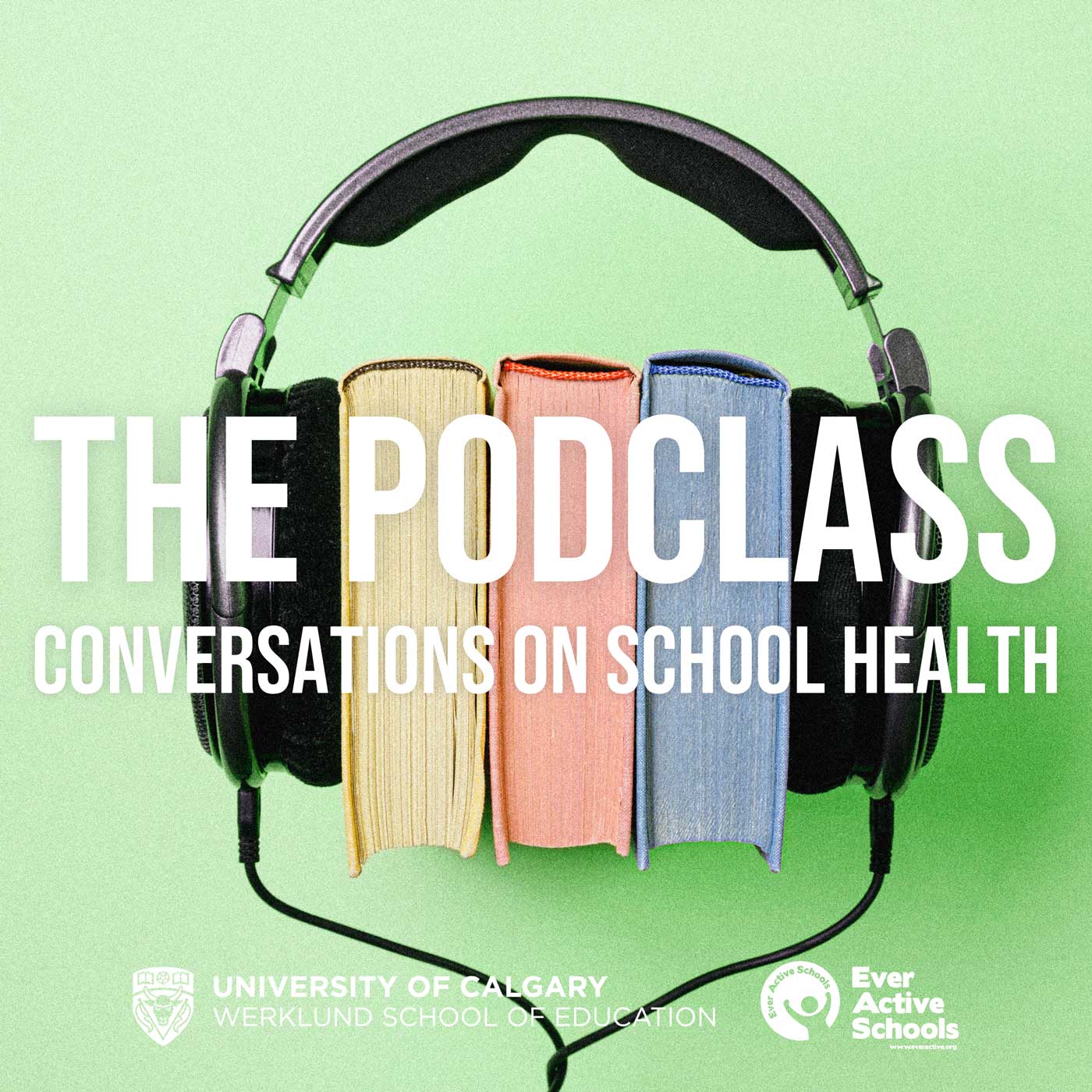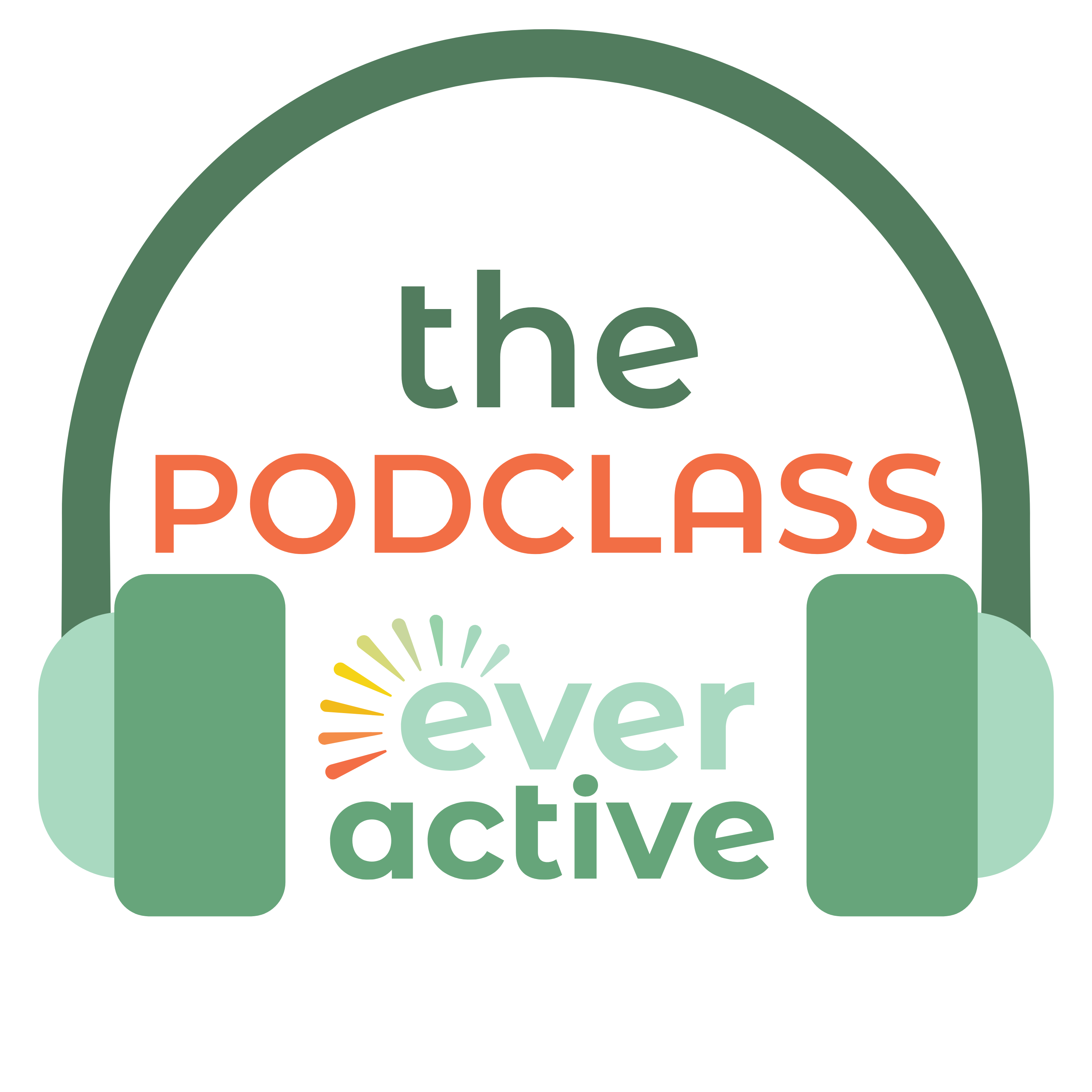Discover The Podclass
The Podclass

64 Episodes
Reverse
Hosts Elizabeth Tingle and Jamie Anderson introduce themselves and the new series Conversations on School Health. They discuss their own backgrounds in education, and have a conversation on land acknowledgements and what the series holds for listeners.
Elizabeth talks with Scott Bailey, a wellness consultant with Ever Active Schools, about the importance of health promotion in schools and why they're an ideal place for upstream approaches to improve wellness. They discuss what Comprehensive School Health is and what it looks like in practice.Additional Resources:Government of Canada: “Social determinants of health and health inequalities”Alberta Health Services Provincial Teacher Resource List 2019-2020Reimagining School SportLoose Parts Play (like tarps and tires)Sports as a Platform for Resilience in Indigenous SchoolsIndigenous Youth Mentorship ProgramDon’t Walk in the HallwayGirls Only Run ClubYouth Run Club in High Schools
Jamie is joined by Chrysta Bell, a program consultant in Alberta Health Services’ Tobacco Reduction Program, who shares her knowledge and expertise around tangible strategies for preventing tobacco use by students.Additional Resources:Alberta Health Services Information for Schools & EducatorsAlberta Quits Alberta Quits - Resources for Teachers and Schools Alberta Quits - The Academy for Tobacco Prevention
Elizabeth talks with Medical Health Officers Dr. Hu and Dr. Gustafson in November 2020 to discuss the impact of COVID-19 on the school context. They share how the pandemic has highlighted social inequities and the importance of multidimensional wellbeing and how to keep perspective as a teacher.
Elizabeth talks with Katherine Zavodni and Anna Lutz, dietitians with expertise in treating eating disorders, about striking the right balance when teaching about healthy eating and nutrition in schools. They provide suggestions for a developmentally appropriate and protective approach so that students can have a positive relationship with food and their bodies.Additional Resources:Ellyn Satter InstituteTribole, E. & Resch, E. (2020). Intuitive eating (4th ed.) St. Martin’s Press.
Dr. Shannon Kell, associate professor at Mount Royal University, joins Jamie to discuss the benefits to both students and teachers of being outside and connecting with nature. Dr. Kell shares ways to gradually incorporate the outdoors into your teaching practice and lessons learned from the (literal and figurative) field of outdoor education.Additional Resources:Childhood by NatureTake Me OutsideFacebook groups: search “Nature Resources” and/or “Nature Learning”
Jamie chats with Chris Fenlon-MacDonald, a specialist with the Calgary Board of Education, on ways to incorporate physical activity and movement into the school day and why all teachers share in the responsibility to help students move more.Additional Resources:Ever Active SchoolsBe Fit for Life NetworkActive for LifeHealth and Physical Education Council
Elizabeth and Dr. Shelly Russell-Mayhew, a psychologist who researches weight-based issues as a professor at the University of Calgary, talk about weight bias and how to promote holistic health at school. They share how to respond to weight-based bullying and how to make schools more accepting of everyBODY.Additional Resources:UConn Rudd CenterPiran, N. (2004). Teachers: On "being" (rather than "doing") prevention. Eating Disorders, 12, 1-9.Nutter, S., Ireland, A., Alberga, A. S., Brun, I., Lefebvre, D., Hayden, K. A., & Russell-Mayhew, S. (2019). Weight bias in educational settings: A systematic review. Current Obesity Reports, 8, 185-200. Health at Every Size in the school setting
Elizabeth talks with Grade 3/4 teacher Tracey Tinley, recipient of the Prime Minister’s Award for Teaching Excellence, on how flexible seating can impact multiple areas of wellbeing for students. She shares practical, budget-friendly strategies on how to incorporate flexible teaching approaches in your classroom.Additional Resources:Tracey on InstagramTracey’s flexible classroom on TwitterOther example of a flexible seating initiative
Elizabeth talks with Krista Dumba, a teacher and nurse who currently works with Alberta Health Services on mental health promotion, on the many health benefits of kindness. She shares inspiring ideas and examples of teachers who have helped their students to experience the benefits of spreading kindness.Additional Resources:Dr. Dan Siegel’s Hand Model of the BrainRandom Acts of KindnessBuddy Bench exampleKindness NinjasRita Pierson’s TEDTalkVideo of Coquitlam BC Breakfast ClubDr. Stuart ShankerCollaborative for Academic, Social, and Emotional Learning (CASEL)Understood.orgDr. Kirsten NeffThe Dalai Lama Center For Peace and Education
Jamie speaks with Caroline Gosling, a former educator and current board member with the Alberta Restorative Justice Association, about restorative justice. Caroline shares proactive ways to build restorative cultures in schools and how restorative justice works in a school setting.Additional Resources:Relationships FirstEvans, K. & Vaandering, D. (2016). The Little Book of Restorative Justice in Education: Fostering Responsibility, Healing, and Hope in Schools. Good Books. ISBN 1680991728, 9781680991727Roffey, S. (2020). Circle solutions for student wellbeing (3rd ed.). Sage Publications. ISBN 1526491168, 978-1526491169International Institute for Restorative Practices Canada
Elizabeth talks with Lianne Lee, Director of the Alberta Healthy Youth Relationships Strategy, about social-emotional learning and how key relationships are to youth development. Lianne shares how teachers can help students who may be experiencing teen dating violence.Additional Resources:Collaborative for Academic, Social, and Emotional Learning (CASEL)PrevNetLove Is RespectThe Fourth RPaul Gorski speech on “Ideologies of inequity: Towards a structural view”
Elizabeth talks with Dr. Teresa Fowler, assistant professor at Concordia University, on how trauma can affect student learning and behaviour. She shares stories and strategies on how to respond with compassion when students who have experienced trauma are in our care.Additional Resources:Tanen, N. (Producer) & Hughes, J. (Producer and Director) (1985). The breakfast club. [Motion picture]. USA: A&M Films. https://www.imdb.com/title/tt0088847Perry, B. D., & Szalavitz, M. (2008). The boy who was raised as a dog : and other stories from a child psychiatrist's notebook--what traumatized children can teach us about loss, love, and healing. Basic Books.Alberta Family Wellness Initiative: The Brain Story Certification ProgramACES Study Questionnaire
Jamie and Elizabeth share their unique experiences of teaching in alternative school programs and student leadership initiatives in this episode that focuses on how school can be a site for skill development, social belonging, and positive mental well-being. Jamie talks about how a student-led volunteer project, Joy4All, landed his class in the media spotlight.Additional ResourcesJoy4AllMaskwacis School of Rock (formerly the Hobbema School of Rock)Cadbury commercial of Jamie’s students and their Joy4All project
Elizabeth speaks with Dr. Kate Storey, associate professor in the School of Public Health at the University of Alberta, about how teachers can promote wellbeing in small but real ways. She focuses on the need for a good night’s rest and how we can encourage our students to prioritize sleep to improve their health and academic success.Additional Resources:CSEP GuidelinesParticipActionKate Storey's Website
Elizabeth speaks with Andrew Baxter, who works with Alberta Health Services to promote mental health literacy, about teachers’ role in promoting mental health in the school setting. He provides useful information on the most common mental disorders teachers may see in their students.Additional Resources:Teen Mental HealthTeen Mental Health YouTube ChannelAnxiety Canada
Elizabeth speaks with Lisa Bush, author of the book Teaching Well: How Healthy, Empowered Teachers Lead to Thriving, Successful Classrooms, about how teachers can intentionally change what’s under their control to be a well-rounded, happy teacher. She shares her favourite tips for time management, collaboration, and assessment with an eye to reducing workload but not our effectiveness as teachers.Additional Resources:Brown, Roediger, McDaniel, Roediger, Henry L., and McDaniel, Mark A. (2014). Make It Stick : The Science of Successful Learning. Belknap Press.Sackstein, S. (2015). Hacking assessment: 10 ways to go gradeless in a traditional grades school. Times 10 Publications.Tricarico, D. (2018). Sanctuaries: Self-care secrets for stressed-out teachers. Dave Burgess Consulting.
Elizabeth talks with Lisa Taylor, an instructor at the University of Calgary, about small shifts to embed wellness in your daily routine as a teacher. She shares stories about how she became health champion in the schools where she taught and how health promotion can lead to happier school communities.Apps for reading articles:For iOS: Natural Readers AppFor android: Voice Aloud Reader
Elizabeth talks with Dana, a teacher and instructor at the University of Calgary and the University of Pennsylvania, about the need to prioritize teacher wellbeing in addition to student wellbeing when it comes to school health promotion. She shares practical strategies for teachers to feel their best, maintain perspective, and enjoy their work.Additional Resources:My Sleep WellCBC Article on Self Help SelfCompassion.orgDay One AppVIA Institute on CharacterCoursera: Resilience Skills in a Time of Uncertainty
Jamie talks with Ben Schworer from Rocky Mountain Collective, a cannabis shop in Hinton, Alberta about how teachers, health promotion professionals, and cannabis retailers are unlikely allies in keeping cannabis out of the hands of youth.Additional Resources:LeaflyProject CBDDr. Ethan Russo


